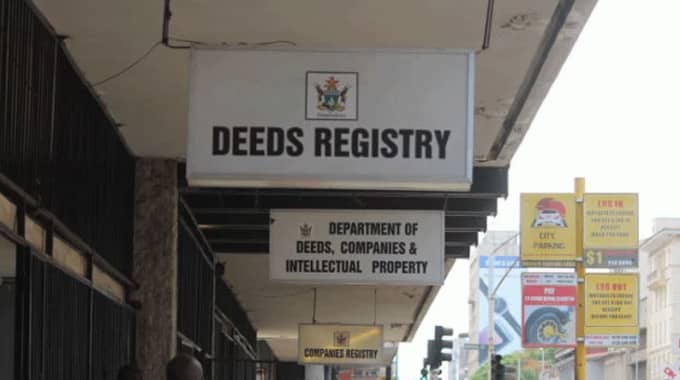|
Getting your Trinity Audio player ready…
|
By Hopewell Chibvongodze
Harare, April 04, 2024 – The Department of Deeds, Companies, and Intellectual Property is implementing an Intellectual Property Management System (IPAS 4.0) which will allow online application of Intellectual property.
In an Interview, the organisation’s chief registrar, Willie Mushayi, said this is a web system, which will allow an online transaction that allows clients and customers to travel as they can access the service from wherever they are.
“There are ongoing projects for all three. I will start with Intellectual Property, we are implementing an Intellectual Property management system that will allow for online application and this is called IPAS 4.0. This is a web-based system that will allow online transactions, limiting or making it irrelevant for citizens to visit the office, he said.
“This will be our first response to the issue of devolution to say that there is a digital presence but in terms of physical presence, that is being worked out,” he said.
He said the process was however work in progress, adding that they were at the implementing stage to enable citizens to access the service soon.
The Government of Zimbabwe identified devolution as a key pillar to achieving an upper-middle-income economy and achieving its Vision 2030.
Under devolution, citizens are involved in setting the development agenda in their communities.
The framework for devolution is enshrined in section 264 of the Constitution of Zimbabwe and other subsidiary legislation such as the Urban Council Act (Chapter 29:15), Rural Councils Act (Chapter 29:13), Regional and Town and Country Planning Act (Chapter 29: 12), Rural Councils and Administration Act (Chapter 29:11).
There are three tiers of government as defined in section 5 of the Constitution of Zimbabwe that will implement the devolution agenda. These three tiers include the central government, provincial and metropolitan; and the local authorities which include urban and rural councils.
Zimbabwe already has a remarkable degree of administrative decentralisation which the implementation of the devolution agenda is being built upon. The country already had functional local authorities and provincial structures within its governance framework.
Nine key success factors in the implementation of devolution were identified. These factors are considered within the Zimbabwean context to enhance the implementation of the devolution agenda.
They include clarity of roles and responsibilities for different tiers of government, strong legal and institutional framework, adequacy of financial resources, and adequacy of human resources. Systems in all three tiers of government need to be harmonised to ensure enhanced transparency and accountability.
There is a need to avoid unfunded mandates for devolved areas through adequate budgetary provisioning from the central government. This will be coupled with a strong political will, citizen participation in decision-making, and translation of documentation from English to all 16 languages recognised in the Constitution of Zimbabwe.
“The deeds office has three major responsibilities. It is involved in the management, registration, and protection of title deeds to land ownership. There is a company’s office which takes care of registered businesses. It registers and maintains applications relating to registered business. Lastly, there is Intellectual Property which takes care of trademarks, patents, Industrial designs, and copyrights,” he said.
